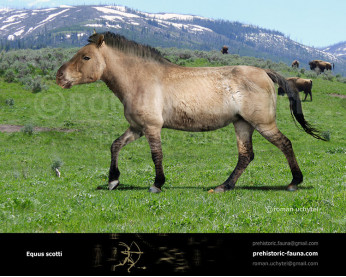Equus giganteus (Giant horse)
473473
Giant horse (†Equus giganteus (Gidley, 1901))
Order: Perissodactyla
Family: Equidae
Expansion: late Pleistocene of North America (12,000 years ago)
Dimensions: 2,7 m in length, 170-200 cm in height, 1200-1500 kg of weight
The giant horse is an extinct species of horse which lived in North America starting in the Blancan, and died out about 12,000 years ago near the end of the Pleistocene around the same time as most of the other megafauna of the Americas. Equus giganteus, the largest known species of fossil horse. Standing up to 2 m tall at the shoulder and weighing 1200-1500 kg, this species was as large as or larger than most draft horses.
Payment
You may use multiple payment methods to buy image such as credit cards, PayPal and bank transfer.
Giant horse (†Equus giganteus (Gidley, 1901))
Order: Perissodactyla
Family: Equidae
Expansion: late Pleistocene of North America (12,000 years ago)
Dimensions: 2,7 m in length, 170-200 cm in height, 1200-1500 kg of weight
The giant horse is an extinct species of horse which lived in North America starting in the Blancan, and died out about 12,000 years ago near the end of the Pleistocene around the same time as most of the other megafauna of the Americas. Equus giganteus, the largest known species of fossil horse. Standing up to 2 m tall at the shoulder and weighing 1200-1500 kg, this species was as large as or larger than most draft horses.

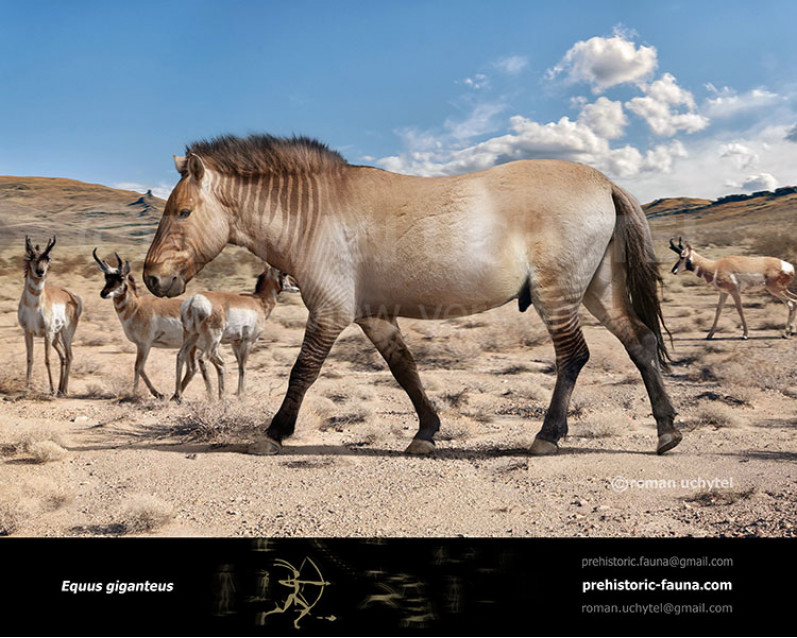
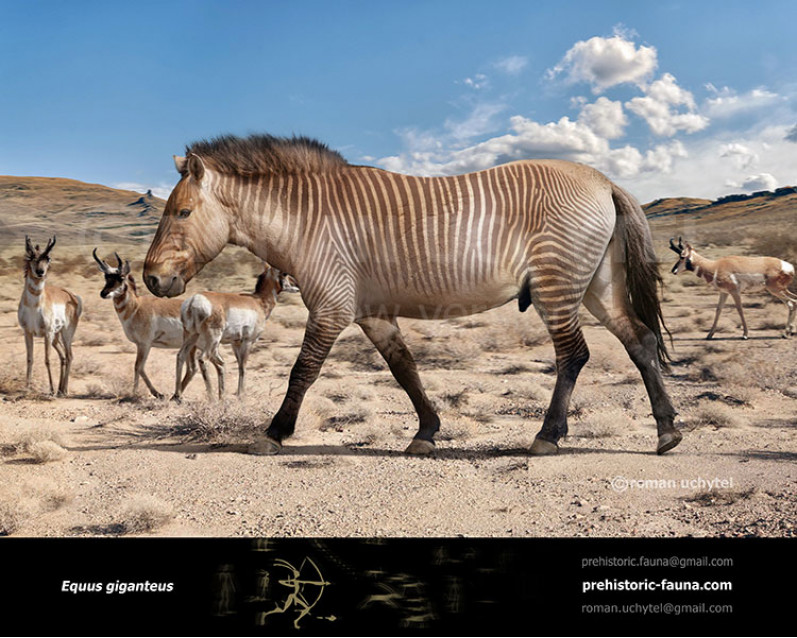
-797x638.jpg)
1-1-797x638.jpg)
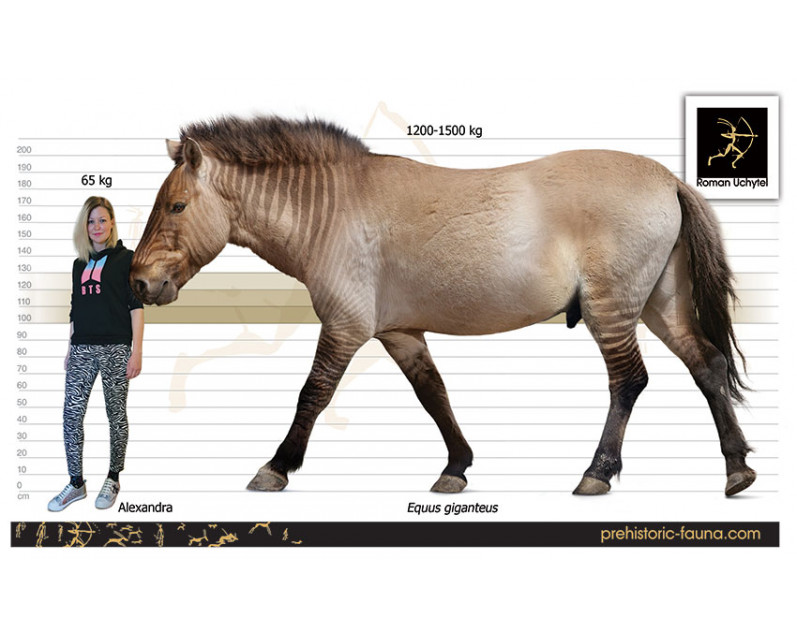


-70x56.jpg)
1-1-70x56.jpg)

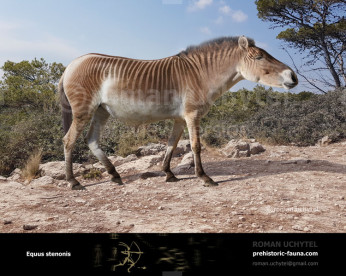
-346x277.jpg)
-346x277.jpg)
